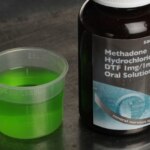Bupe or Bust
It wasn’t long, however, before we realized that the relapse rates from detoxification using Suboxone were quite high, with drug use often resuming on the day of discharge.

Select Page
by C. Scott McMillin | Dec 8, 2025 | In the News | 0 |
It wasn’t long, however, before we realized that the relapse rates from detoxification using Suboxone were quite high, with drug use often resuming on the day of discharge.

by C. Scott McMillin | Jan 20, 2025 | Treatment | 0 |

by C. Scott McMillin | Jul 22, 2024 | Treatment | 0 |

by C. Scott McMillin | Mar 14, 2024 | Recovery | 0 |

by C. Scott McMillin | Mar 27, 2023 | Thinking About Addiction | 0 |

by C. Scott McMillin | Mar 13, 2023 | Public Policy | 0 |
by C. Scott McMillin | Feb 28, 2022 | Addiction | 1 |
I asked a number of the attending docs if they’d spoken with the patient about the problem, and was startled by how rarely the answer was yes.
Read Moreby C. Scott McMillin | Feb 14, 2022 | Treatment | 0 |
If Medicaid, for instance, expanded approval of naltrexone injections to include methamphetamine, that would make the combination more useful to addiction treatment.
Read Moreby C. Scott McMillin | Jul 9, 2018 | In the News | 0 |
It does seem ironic that the industry most responsible for the creation and continuation of our current opioid epidemic could also be the main beneficiary of this next wave of treatment funding.
Read Moreby C. Scott McMillin | May 7, 2018 | Thinking About Addiction | 0 |
I’d feel better if I knew some in our brilliant science community were working hard on ways to taper patients, if just the most highly motivated, off the medications with a reduced risk of return to heroin.
Read Moreby C. Scott McMillin | Feb 22, 2018 | Addictive Substances, Thinking About Addiction | 0 |
We may be stuck relying on the soft stuff– therapy, support, behavior change, even spiritual growth– all those icky-squicky things that neuroscientists struggle to quantify.
Read Moreby C. Scott McMillin | Nov 30, 2017 | Addiction Clinicians, Addictive Substances, People in Recovery | 0 |
If addiction really is a brain disorder based in complex adaptations to a substance, then who’s to say those adaptations won’t occur with a different drug?
Read Moreby C. Scott McMillin | Nov 27, 2017 | Addictive Substances, Thinking About Addiction, Treatment | 0 |
Not surprisingly, the vast majority of patients who drop out or otherwise leave maintenance programs return to heroin at rates of 80% or higher.
Read Moreby C. Scott McMillin | Oct 26, 2017 | Programs, Treatment | 3 |
It’s the basic unit of most drug-free approaches. What would happen if it could be incorporated into the OTP curriculum?
Read Moreby C. Scott McMillin | Sep 25, 2017 | In the News | 0 |
That’s why I’d welcome more research into the tapering process, with an eye to improving success rates.
Read Moreby C. Scott McMillin | Sep 21, 2017 | Programs, Treatment | 0 |
Of course with additional treatment responsibilities, a counselor couldn’t be expected to manage a caseload of up to 75.
Read Moreby C. Scott McMillin | Jul 6, 2017 | Public Policy, Treatment | 0 |
The benefits of the program are framed mostly in terms of harm reduction– what doesn’t happen.
Read Moreby C. Scott McMillin | Mar 16, 2017 | Thinking About Addiction, Treatment | 0 |
An answer such as vigorous exercise or meditation or going to a meeting will never be as universally attractive to someone a few weeks sober as “well, here, why don’t you toke this?”
Read More